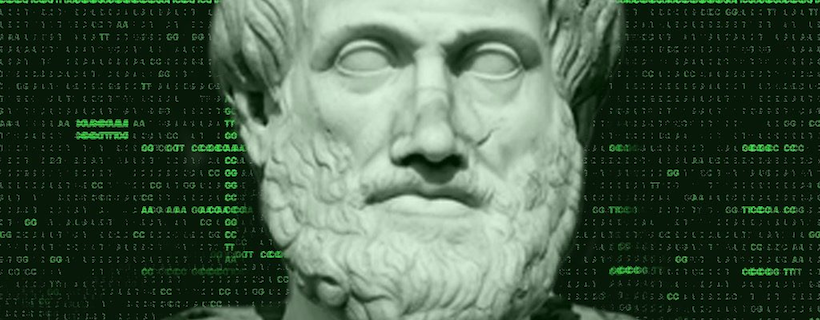You might wonder what Aristotle, automation, and empathy have to do with one another. The answer is simple: the future of happiness.
Aristotle believed that man could achieve happiness by working on and developing the things unique to his nature, which he specifically believed to be thought and reason. Humans, at least in the time of Aristotle, were the only things capable of complex thought. That set us above all other animals. With the evolution of AI, that paradigm is changing. Computers can think and reason now, albeit for the most part rudimentarily. It seems only a matter of time before their capacity to think and reason surpasses ours.
If Aristotle is correct in his base assumption that humans derive happiness by developing the things that make us uniquely human, we need to reconsider our unique skillset. There are three things we have written about frequently that seem to be reserved for humankind; at least for now. Those are creativity, community, and empathy.
Of these three, empathy is the king of uniquely human traits. It’s the ability to “understand and share feelings of another.” Given that definition, empathy is arguably the enabler of creativity and community. Creativity represents our ability to transfer some experience or idea we have about the world into something that benefits our fellow man or woman. This requires a compelling understanding of the human condition. Community seems even clearer. We build relationships with people that have things in common with us, people we presumably understand on a fairly specific level.
Though thought and reason may remain uniquely human for a little while longer, it seems rare that people use these capacities for happiness anyway. Arguments have been made about how the Internet has reduced our need and even capacity for thought. Content online lives by encouraging the baser instinct of emotion because it’s easier to share and easier to get likes, and thus easier to generate revenue, than something thoughtful and rational. Emotion blinds empathy and, consequently, thought and rationality. If you cannot empathize with another, you cannot think rationally. Empathy is thus also the king of true thought and perhaps what we should have been optimizing for all along.
Aristotle was right: Happiness does come from developing our uniquely human traits, but not those of thought and rationality. We need to instead focus on empathy because that is the core of understanding each other and the core of what it means to be human. That’s why empathy will be the most important, and most monetizable quality in the automated future.
Disclaimer: We actively write about the themes in which we invest: virtual reality, augmented reality, artificial intelligence, and robotics. From time to time, we will write about companies that are in our portfolio. Content on this site including opinions on specific themes in technology, market estimates, and estimates and commentary regarding publicly traded or private companies is not intended for use in making investment decisions. We hold no obligation to update any of our projections. We express no warranties about any estimates or opinions we make.
